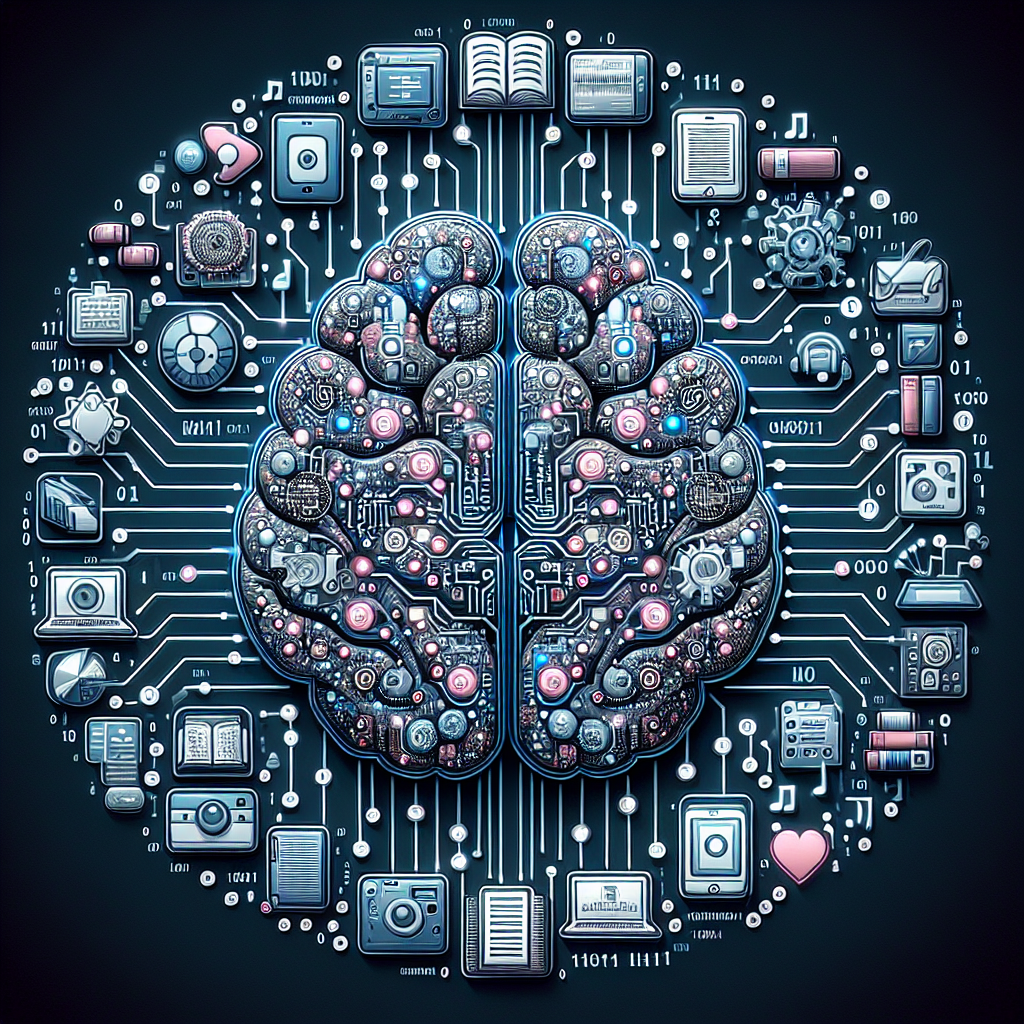Generative AI: Enabling Personalized Content Recommendations
In today’s digital age, the amount of content available online is overwhelming. From social media feeds to streaming services, users are bombarded with an endless stream of information. This can make it challenging for individuals to find the content that truly resonates with them. However, thanks to advancements in artificial intelligence, personalized content recommendations are becoming more accurate and relevant than ever before.
One of the key technologies driving this trend is generative AI. Generative AI refers to algorithms that can generate new content based on patterns and trends in existing data. This technology has been used in a variety of applications, from creating art to composing music. In the realm of content recommendations, generative AI is being used to help users discover new content that aligns with their interests and preferences.
How Generative AI Works
Generative AI works by analyzing vast amounts of data to identify patterns and trends. This data can include user behavior, content metadata, and other relevant information. Once the AI has learned from this data, it can generate personalized content recommendations for individual users.
For example, a streaming service like Netflix may use generative AI to analyze a user’s viewing history, preferences, and ratings. Based on this data, the AI can suggest movies and TV shows that the user is likely to enjoy. The more data the AI has access to, the more accurate and personalized the recommendations will be.
Benefits of Generative AI for Content Recommendations
Generative AI offers several benefits for content recommendations, including:
1. Personalization: Generative AI allows for highly personalized recommendations based on individual preferences and behavior. This can help users discover new content that is tailored to their interests, leading to a more engaging and satisfying experience.
2. Increased Engagement: By providing users with relevant and personalized recommendations, generative AI can increase engagement and retention. Users are more likely to spend time on a platform that offers content they enjoy, leading to higher user satisfaction and loyalty.
3. Improved Discovery: Generative AI can help users discover new content that they may not have found on their own. This can expose users to a wider range of content and genres, leading to a more diverse and enriching experience.
4. Scalability: Generative AI can scale to analyze large amounts of data and generate recommendations for millions of users simultaneously. This scalability allows platforms to offer personalized recommendations to a wide audience without sacrificing accuracy or relevance.
Challenges of Generative AI for Content Recommendations
While generative AI offers many benefits for content recommendations, there are also challenges and limitations to consider. Some of the key challenges include:
1. Data Privacy: Generative AI relies on access to large amounts of user data to generate personalized recommendations. This raises concerns about data privacy and security, as users may be hesitant to share personal information with platforms that use AI algorithms.
2. Bias and Fairness: Generative AI algorithms can inadvertently perpetuate bias and discrimination if they are trained on biased data. It is important for platforms to mitigate bias in their algorithms to ensure fair and equitable recommendations for all users.
3. Interpretability: Generative AI algorithms can be complex and difficult to interpret, making it challenging to understand how recommendations are generated. This lack of transparency can lead to distrust and skepticism among users.
4. Over-recommendation: Generative AI algorithms may have a tendency to over-recommend popular or mainstream content, leading to a lack of diversity in recommendations. Platforms must strike a balance between recommending popular content and introducing users to new and niche content.
FAQs
Q: How does generative AI differ from other types of AI algorithms?
A: Generative AI is a subset of AI algorithms that focus on generating new content based on existing data. This sets it apart from other types of AI algorithms, such as machine learning or deep learning, which may focus on tasks like classification or prediction.
Q: How can generative AI improve content recommendations?
A: Generative AI can improve content recommendations by analyzing user behavior and preferences to generate personalized recommendations. This can help users discover new content that aligns with their interests, leading to a more engaging and satisfying experience.
Q: What are some potential drawbacks of generative AI for content recommendations?
A: Some potential drawbacks of generative AI for content recommendations include concerns about data privacy, bias and fairness, interpretability, and over-recommendation. Platforms must address these challenges to ensure that their recommendations are accurate, relevant, and fair.
Q: How can platforms mitigate bias in generative AI algorithms?
A: Platforms can mitigate bias in generative AI algorithms by carefully selecting and preprocessing training data, auditing algorithms for bias, and implementing fairness-aware techniques. It is important for platforms to prioritize fairness and equity in their recommendations to ensure a positive user experience.
Q: What are some best practices for implementing generative AI for content recommendations?
A: Some best practices for implementing generative AI for content recommendations include prioritizing user privacy and data security, mitigating bias and discrimination, promoting transparency and interpretability, and offering diverse and personalized recommendations. Platforms should also engage with users to gather feedback and improve their recommendation algorithms over time.
In conclusion, generative AI is revolutionizing content recommendations by enabling personalized and engaging experiences for users. By leveraging the power of AI algorithms to analyze user data and generate tailored recommendations, platforms can help users discover new content that aligns with their interests and preferences. While there are challenges and limitations to consider, the benefits of generative AI for content recommendations are clear. As technology continues to evolve, we can expect generative AI to play an increasingly important role in shaping the way we consume and interact with content online.

